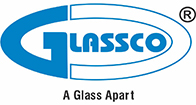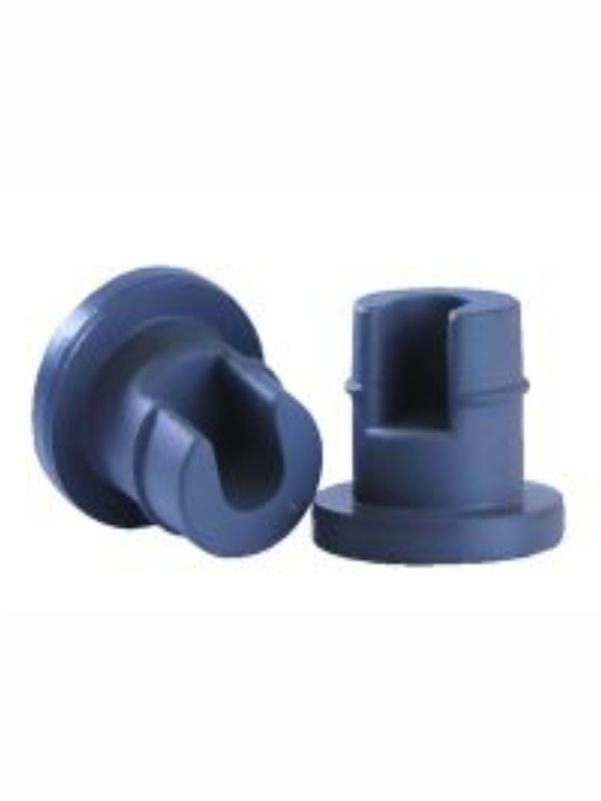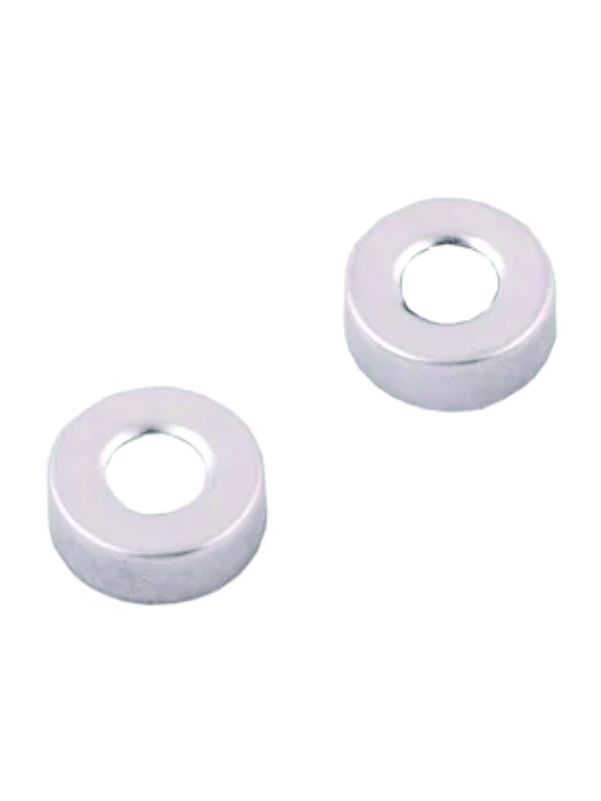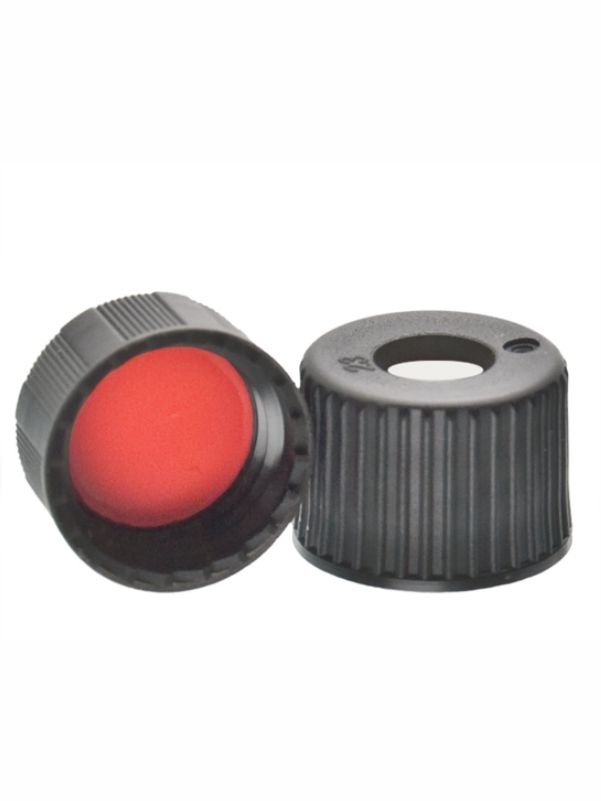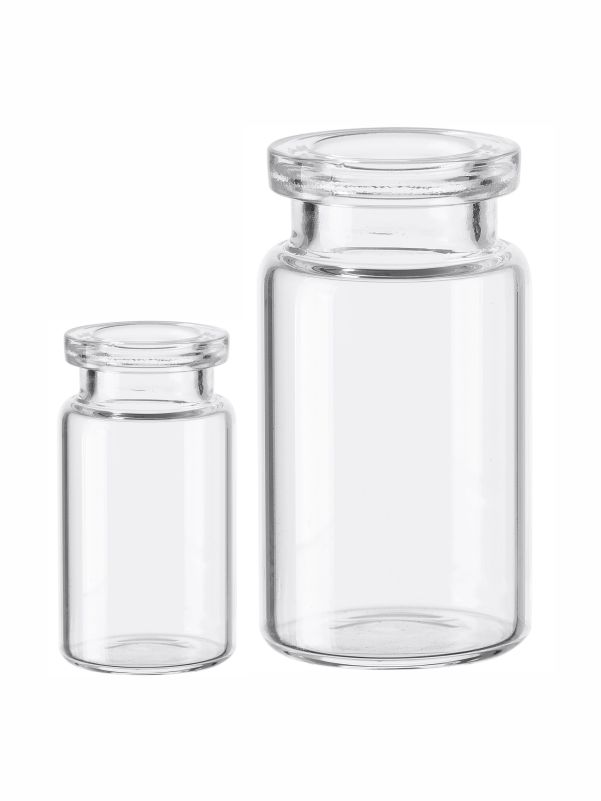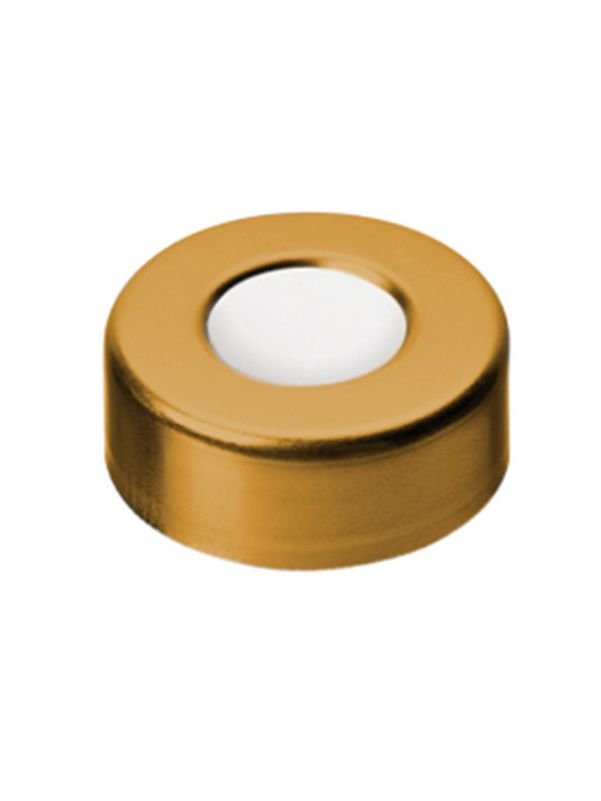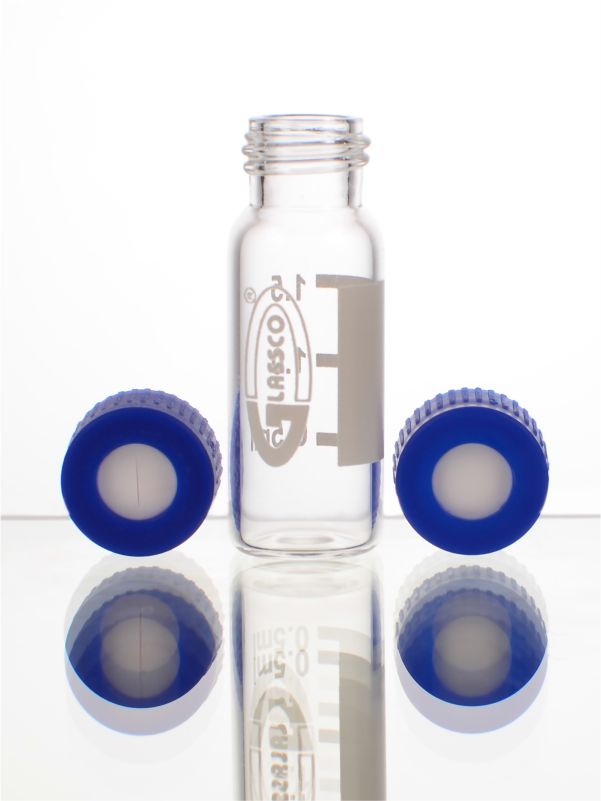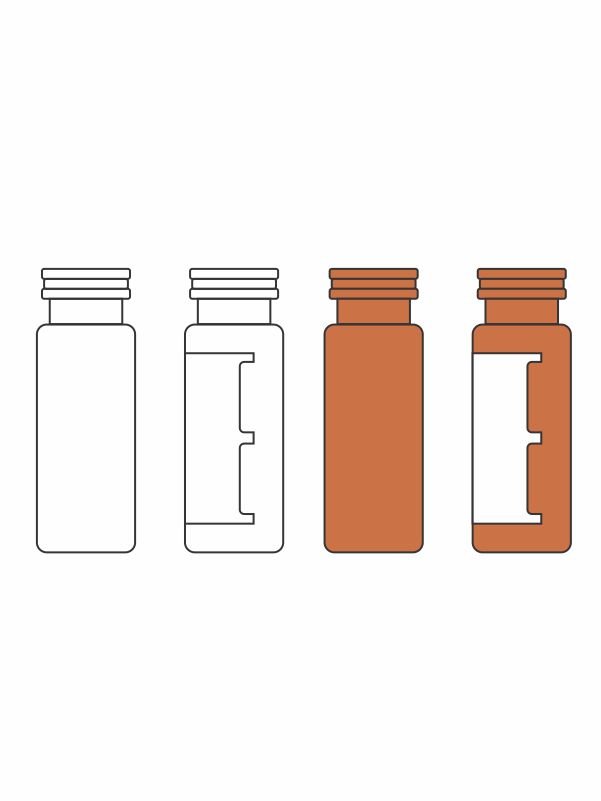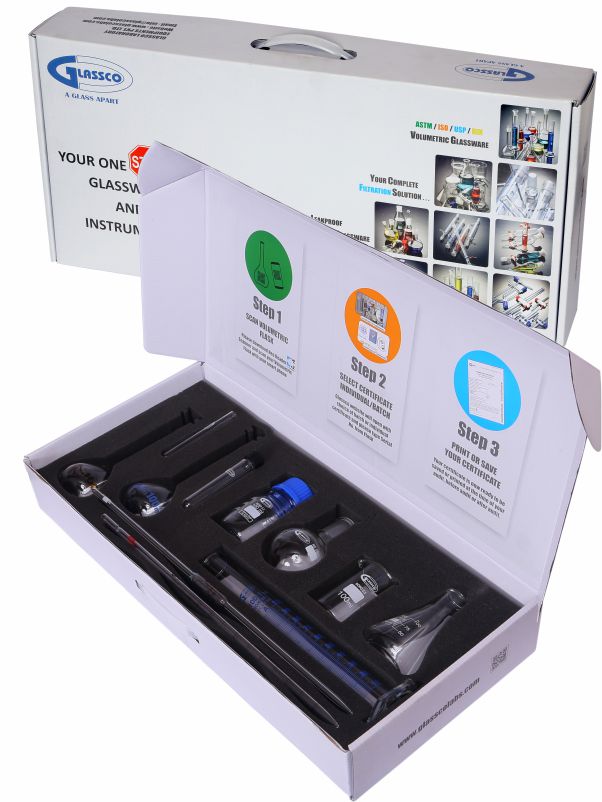Manufacturers of Glass Vials solving Pharmaceutical Primary Packaging needs by providing HPLC, Injection, scintillation vials of best quality manufactured using borosilicate glass.
Exporting to 87+ countries worldwide.
50+ Years of experience in manufacturing pharma glass
Contact Us
Are you facing these issues with your glass vials ?
- Thinner glass vials, likely to breaks easily
- Loose seals causing leakage and contamination.
- Low quality caps make the fit unsecured and results in opening and spilling its contents.
- Poor labels make it difficult to identify and use correctly.
- Low quality label printing makes labels illegible and fades over time.
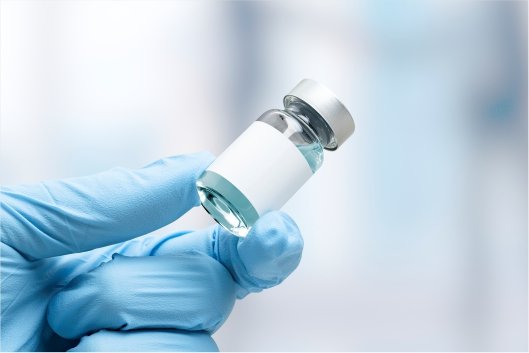
If You Are Facing Any Of These Problems, Please Fill The Form for FREE SAMPLES
How many types of Glass Vials are there?
There are many different types of glass vials, including clear, amber, and blue glass vials, as well as vials with a variety of closures, such as screw caps, crimp caps, and snap caps.
CHROMATOGRAPHY VIALS
SCREW NEW VIALS
Screw New Vials 12 X 32 mm (ND 8)
Screw neck vials ND8 are available in clear and amber Type 1 Glass. vials comes with 8-425 thread for used as standard GC & HPLC applications
| Code | Glass Color | Patch | Neck Type | D x H (mm) | Working Volume (ml) | Pack Unit |
|---|---|---|---|---|---|---|
| GW.SVC8.01 | Clear | * | ND8 | 11.6 x 32 | 1.5 | 100 |
| GW.SVC8.02 | Clear | Yes | ND8 | 11.6 x 32 | 1.5 | 100 |
| GW.SVA8.01 | Amber | * | ND8 | 11.6 x 32 | 1.5 | 100 |
| GW.SVA8.02 | Amber | Yes | ND8 | 11.6 x 32 | 1.5 | 100 |
PP Caps for Screw Neck Vials 12 x 32 mm (ND 8)
Screw Caps ND8 are made of Polypropylene – PP with fitted septa. Caps have 8-425 thread, with open top center hole
| Code | Cap Color | Cap Design | Neck Type | Liner | Pack Unit |
|---|---|---|---|---|---|
| GW.SV8.BC1 | Black | Open Top | ND8 | Silicone White / PTFE red | 100 |
| GW.SV8.BC2 | White | Open Top | ND8 | Silicone Red / PTFE White | 100 |
Screw New Vials 12 X 32 mm (ND 9)
Screw neck vials ND9 are available in clear and amber Type 1 Glass. vials come with wide opening 9mm thread and can be used on almost any autosampler
| Code | Glass Color | Patch | Neck Type | D x H (mm) | Working Volume (ml) | Pack Unit |
|---|---|---|---|---|---|---|
| GW.SVC9.01 | Clear | * | ND9 | 11.6 x 32 | 1.5 | 100 |
| GW.SVC9.02 | Clear | Yes | ND9 | 11.6 x 32 | 1.5 | 100 |
| GW.SVA9.01 | Amber | * | ND9 | 11.6 x 32 | 1.5 | 100 |
| GW.SVA9.02 | Amber | Yes | Nd9 | 11.6 x 32 | 1.5 | 100 |
PP Caps for Screw Neck Vials 12 x 32 mm (ND 9)
Screw Caps ND9 are made of Polypropylene – PP with fitted septa. Caps have 9mm thread, with open top center hole
| Code | Cap Color | Cap Design | Neck Type | Liner | Pack Unit |
|---|---|---|---|---|---|
| GW.SV9.BLC2 | Blue | Open Top | ND9 | PTFE Red/White Silicone | 100 |
| GW.SV9.BLC4 | Blue | Open Top | ND9 | PTFE Blue/White Silicone/ pre-slit (single) | 100 |
| GW.SV9.BLC5 | Blue | Open Top | ND9 | PTFE Red / Silicone White pre-slit | 100 |
Screw New Vials 15 x 45 mm (ND 13)
| Code | Glass Color | Patch | Neck Type | D xH (mm) | Working Volume (ml) | Pack Unit |
|---|---|---|---|---|---|---|
| GW.SVC13.01 | Clear | * | ND13 | 14.7 x 45 | 4 | 100 |
| GW.SVC13.02 | Clear | Yes | ND13 | 14.7 x 45 | 4 | 100 |
| GW.SVA13.01 | Amber | * | ND13 | 14.7 x 45 | 4 | 100 |
| GW.SVA13.02 | Amber | Yes | ND13 | 14.7 x 45 | 4 | 100 |
CRIMP TOP Vials
- Designed to use for High Pressure / Performance Liquid Chromatograhpy (HPLC) and Gas Chromatography (GC) Applications.
- Crimp top vials consist of an Aluminum cap and PTFE / Silicon / Rubber Septum thus forms a superior seal and reduces evaporation.
- Optional with White Ceramic Writing Patch and fill marks for easy labelling.
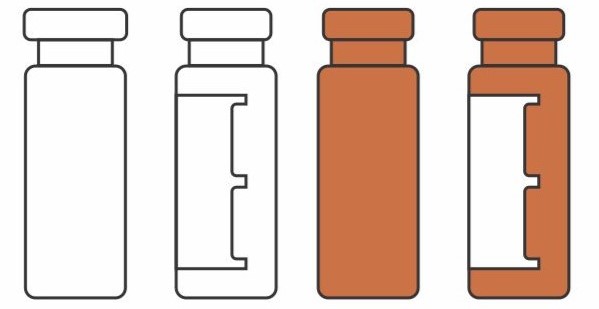
Crimp Top Vials 12 x 32 mm (ND 11)
Crimp Neck vials ND11 are available in clear and amber Type 1 Glass for used as standard GC & HPLC applications.
| Code | GlassColor | Patch | NeckType | DxH(mm) | WorkingVolume(ml) | PackUnit |
|---|---|---|---|---|---|---|
| GW.CTC11.01 | Clear | * | ND11 | 11.6×32 | 1.5 | 100 |
| GW.CTC11.02 | Clear | Yes | ND11 | 11.6×32 | 1.5 | 100 |
| GW.CTA11.01 | Amber | * | ND11 | 11.6×32 | 1.5 | 100 |
| GW.CTA11.02 | Amber | Yes | ND11 | 11.6×32 | 1.5 | 100 |
SNAP RING Vials
- A snap cap provides a moderate seal and doesn’t require special tools.
- Snap Caps can be snapped onto a vial and removed by hand thus eliminate the need for crimping and decapping tools.
- With an opening in the top, snap caps provide easy access for autosamplers.
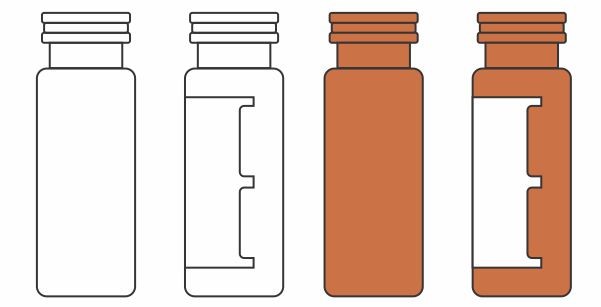
Snap Ring Vials 12 x 32 mm (ND 11)
- Snap ring vials ND11 are available in clear and amber type-1 glass can be used on almost any autosamplers
- Snap ring vials are suitable for HPLC applications
| Code | Glass Color | Patch | Neck Type | DxH(mm) | WorkingVolume(ml) | PackUnit |
|---|---|---|---|---|---|---|
| GW.SRVC11.01 | Clear | * | ND11 | 11.6×32 | 1.5 | 100 |
| GW.SRVC11.02 | Clear | Yes | ND11 | 11.6×32 | 1.5 | 100 |
| GW.SRVA11.01 | Amber | * | ND11 | 11.6×32 | 1.5 | 100 |
| GW.SRVA11.02 | Amber | Yes | ND11 | 11.6×32 | 1.5 | 100 |
HEAD SPACE Vials
- Designed to use for High Pressure / Performance Liquid Chromatograhpy (HPLC) and Gas Chromatography (GC) Applications.
- Crimp top vials consist of an Aluminum cap and PTFE / Silicon / Rubber Septum thus forms a superior seal and reduces evaporation.
- Optional with White Ceramic Writing Patch and fill marks for easy labelling.
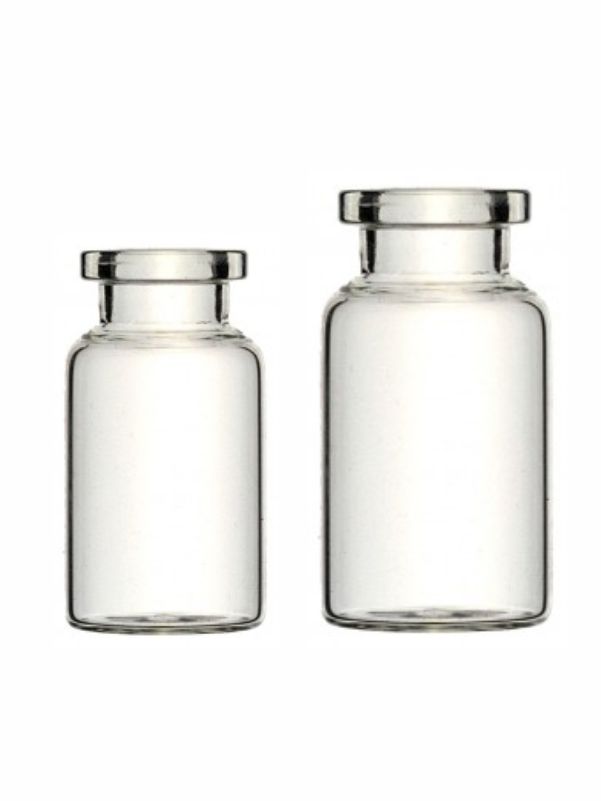
Head Space Vials ND 20
On the flat DIN crimp neck, liners have a greater contact surface, which ensures a better seal. A bevelled HS neck is required if the overpressure safety seal.
| Glass Code | Color | Patch | Neck Type | D xH (mm) | Working Volume (ml) | Bottom Design | Finish | Special | Pack Unit |
|---|---|---|---|---|---|---|---|---|---|
| GW.HPVC20.01 | Clear | * | ND20 | 22 X 38 | 5 | Round | HS | Long Neck | 100 |
| GW.HPVC20.02 | Clear | * | ND20 | 22 X 38 | 5 | Flat | HS | Long Neck | 100 |
| GW.HPVC20.03 | Clear | * | ND20 | 20 X 38 | 5 | Flat | DIN | Long Neck | 100 |
| GW.HPVC20.04 | Clear | * | ND20 | 22.5 X 46 | 10 | Round | DIN | Long Neck | 100 |
| GW.HPVC20.05 | Clear | * | ND20 | 22.5 X 46 | 10 | Flat | DIN | Long Neck | 100 |
| GW.HPVC20.06 | Clear | * | ND20 | 20 X 54.5 | 10 | Flat | DIN | Long Neck | 100 |
| GW.HPVC20.07 | Clear | * | ND20 | 22.5 X 75.5 | 20 | Flat | DIN | Long Neck | 100 |
| GW.HPVC20.08 | Clear | * | ND20 | 22.5 X 75.5 | 20 | Round | DIN | Long Neck | 100 |
| GW.HPVC20.09 | Clear | * | ND20 | 22.5 X 75.5 | 20 | Round | DIN | Long Neck | 100 |
| GW.HPVC20P.10 | Clear | Yes | ND20 | 22.5 X 75.5 | 20 | Round | HS | Long Neck | 100 |
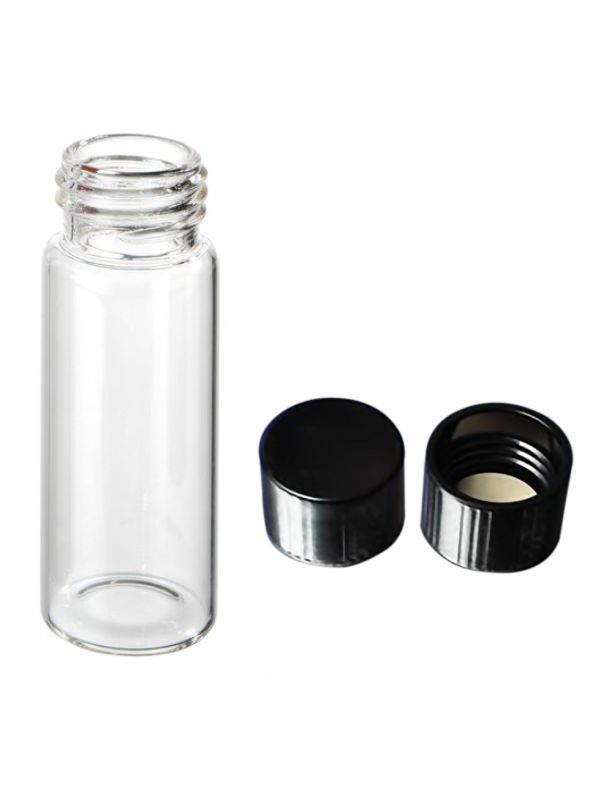
SAMPLE VIALS (With Unattached Caps)
• Boro 5.0 Expansion
These are general-purpose vials are available various sizes & capacities. these are made from clear type -1 glass. cap is flushed with vial shoulder. Supplied with black phenolic caps with polyvinyl-faced pulp liner. The cap on the vial is the same diameter as the body, fitting flush to the shoulder.
| Item Code | Size | Capacity | Cap Colour | Cap Material | Linear Material | Thread Size | Inner Size | Case Size |
|---|---|---|---|---|---|---|---|---|
| 086.211.01 | 12×35 | 1.80 | Black | Phenolic | Polyvinyle faced Pulp | 8-425 | 144 | 5184 |
| 086.211.02 | 15×45 | 4.00 | Black | Phenolic | Polyvinyle faced Pulp | 13-425 | 144 | 2304 |
| 086.211.03 | 16×50 | 6.00 | Black | Phenolic | Polyvinyle faced Pulp | 13-425 | 144 | 2592 |
| 086.211.04 | 17×60 | 8.00 | Black | Phenolic | Polyvinyle faced Pulp | 15-425 | 144 | 1728 |
| 086.211.05 | 19×65 | 12.00 | Black | Phenolic | Polyvinyle faced Pulp | 15-425 | 144 | 1728 |
| 086.211.06 | 21×70 | 16.00 | Black | Phenolic | Polyvinyle faced Pulp | 18-400 | 144 | 1152 |
| 086.211.07 | 23×85 | 24.00 | Black | Phenolic | Polyvinyle faced Pulp | 20-400 | 144 | 864 |
| 086.211.08 | 25×95 | 30.00 | Black | Phenolic | Polyvinyle faced Pulp | 22-400 | 144 | 576 |
| 086.211.09 | 28×57 | 16.00 | Black | Phenolic | Polyvinyle faced Pulp | 24-400 | 72 | 432 |
| 086.211.10 | 28×70 | 24.00 | Black | Phenolic | Polyvinyle faced Pulp | 24-400 | 72 | 432 |
| 086.211.11 | 28×95 | 35.00 | Black | Phenolic | Polyvinyle faced Pulp | 24-400 | 72 | 432 |
| 086.211.12 | 28×108 | 40.00 | Black | Phenolic | Polyvinyle faced Pulp | 24-400 | 72 | 432 |
Scintillation Vial (With Unattached Caps)
• Boro 3.3 Expansion
| Item Code | Size | Capacity (ml) Approx | Cap Colour | Cap Material | Cap | Material | Thread Size | Inner Size | Case Size |
|---|---|---|---|---|---|---|---|---|---|
| 086.202.06* | 17×57** | 7 | No Cap | Urea | White | Foil Cork | 15-425 | 200 | 1000 |
| 086.209.01 | 17×57** | 7 | White | Urea | White | Cone liner | 15-425 | 200 | 1000 |
| 086.202.20* | 28×61** | 20 | White | PP | White | Foil Pulp | 22-400 | 100 | 500 |
| 086.208.01 | 28×61** | 20 | White | PP | White | PE | 22-400 | 100 | 500 |
| 086.210.01 | 28×61** | 20 | White | Urea | White | Foil Pulp | 22-400 | 100 | 500 |
| 086.210.02 | 28×61** | 20 | White | Urea | White | Foil Pulp | 22-400 | 100 | 500 |
| 086.208.02 | 28×61** | 20 | White | Urea | White | Foil Cork | 22-400 | 100 | 500 |
| 086.208.03 | 28×61** | 20 | White | Urea | White | Foil Cork | 22-400 | 100 | 500 |
| 086.208.04 | 28×61** | 20 | White | Urea | White | Foil Cork | 24-400 | 100 | 500 |
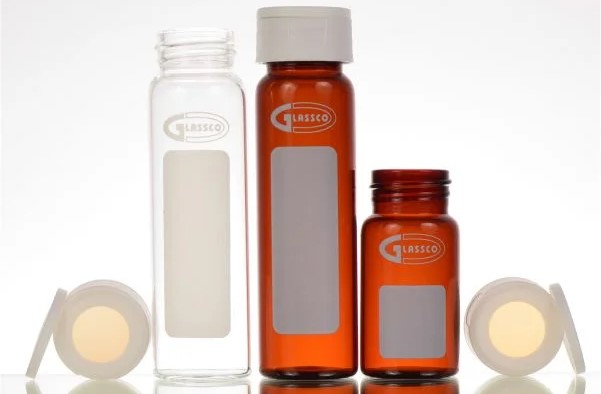
TOC Vials, Amber & Clear Glass
• Borosilicate Glass Exp. 5.1
• With Bonded Cap & PTFE Lined Silicone Septa having flip cover
| Item Code | Capacity (ml) | O.D. | Height | Glass | Septa | Pack |
|---|---|---|---|---|---|---|
| 083.205.02 | 20 | 28 | 57 | Clear | Bonded cap with flip cover | 1×72 |
| 083.205.04 | 40 | 28 | 95 | Clear | Bonded cap with flip cover | 1×72 |
| 083.206.02 | 20 | 28 | 57 | Amber | Bonded cap with flip cover | 1×72 |
| 083.206.04 | 40 | 28 | 95 | Amber | Bonded cap with flip cover | 1×72 |
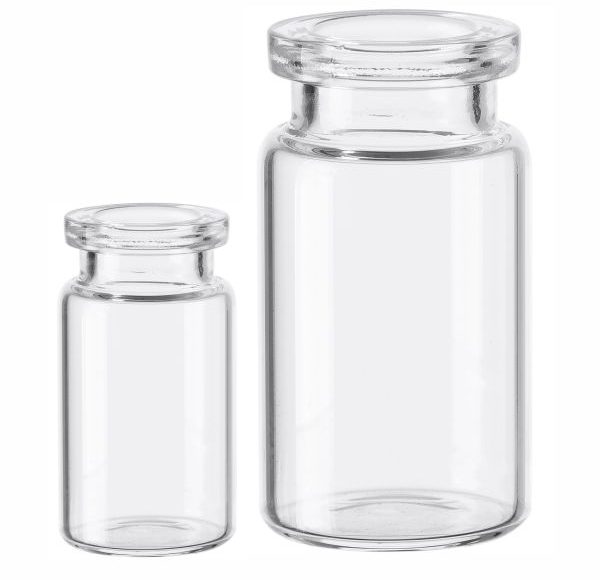
Plain Neck Flat Bottom
• Borosilicate Glass Exp. 7.0
| Code | Tube Dia x Height (mm) | Neck Dia (mm) | Cap. (ml) | Pcs/Inner | Inner/Case | Case Qty (Pcs.) |
|---|---|---|---|---|---|---|
| 086.802.03 | 16.25×35 | 13 | 3ml | 209 | 15 | 3135 |
| 086.804.14 | 22.50×75 | 20 | 20ml | 100 | 9 | 900 |
| 086.804.17 | 24.00×33 | 20 | 5ml | 91 | 15 | 1365 |
| 086.804.18 | 24.00×45 | 20 | 13ml | 91 | 12 | 1092 |
| 086.804.19 | 24.00×60 | 20 | 18ml | 91 | 9 | 819 |
| 086.804.20 | 24.00×74 | 20 | 20ml | 145 | 5 | 725 |
| 086.804.21 | 30.00×62 | 20 | 30ml | 60 | 9 | 540 |
Plain Neck Round Bottom
| Item Code | Tube Dia(mm) | Plain Neck | 1 Inner Pcs | Inner | Case |
|---|---|---|---|---|---|
| 086.806.16 | 22.50 | 20ml | 100 | 9 | 900 |
Why Glassco Laboratory Equipments Pvt. Ltd.
is a great solution for you?
Glassco’s Positioning Statement
- 54 Years of experience
- 62700 Sq Mtr Area
- 87 Distributors across 6 Continents
- 457 Distributors across India
- Our catalogue carries 21588 Equipment SKUs across 11 Lab Categories.
- Glassco has an available inventory of 2.5 million units worth 3.1 million $ at the headquarters at any given point in time.
- Sold more than 4.5 million Volumetric Flasks
- Sold more than 5.5 million Beakers
- Sold more than 3 million Conical Flasks
- Sold more than 1 million Measuring Cylinders
- Sold more than 115 million Disposable Glassware in 2023 (Culture Tubes, Pasteur Pipettes, Test Tubes)
- Vials Production Capacity per day : 121000 pcs
- Droppers Production Capacity per day : 170000 pcs
- Cartridges Production Capacity per day : 19000 pcs
Glassco's Achievements & Results
Glassco Laboratory Equipments Pvt. Ltd.
The largest Laboratory Glassware Exporter from India
Rated 4.8 stars on Google.

TESTIMONIALS
GLASSCO USERS









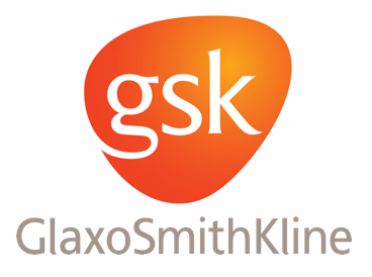















Our Products
Frequently Asked Questions
A glass vial is a small, cylindrical container, typically made of glass, used to store and transport liquids or powders. They are often used in laboratories, pharmaceuticals, and other industries.
A vial is a small container, usually made of glass or plastic, that is used to store and transport liquids. A vial typically has a narrow neck and a cap or stopper. An ampule is a small sealed glass or plastic container that is used to store and transport small amounts of liquid or powder. Ampules are typically sealed with a rubber stopper and have a breakable neck.
Chromatography vials are small containers used to store and transport samples for chromatography testing. They are typically made of glass or plastic and come in a variety of sizes and shapes. Chromatography vials are designed to be airtight and leak-proof, ensuring that the sample remains uncontaminated and that the results of the chromatography test are accurate.
HPLC vials are small containers used to store and analyze samples in high performance liquid chromatography (HPLC). They are typically made of glass or plastic and come in a variety of sizes and shapes. HPLC vials are designed to be airtight and leak-proof, and they are used to store and analyze samples in HPLC instruments.
TOC vials are sample vials used in Total Organic Carbon (TOC) analysis. They are designed to be used with TOC analyzers and are made of high-purity borosilicate glass. The vials are designed to be air-tight, allowing for the collection of samples without contamination. They are also designed to be chemically inert, preventing the sample from reacting with the vial material.
Scintillation vials are small, sealed containers used to store and measure radioactive samples. They are typically made of plastic and are used in laboratories to measure the amount of radioactivity in a sample. The vials are filled with a liquid scintillant, which emits light when exposed to radiation. This light is then measured to determine the amount of radioactivity in the sample.
Dropping vials are small glass bottles with a dropper top that are used to dispense liquid medication. They are typically used in the medical field to dispense small doses of medication or to measure out specific amounts of liquid. Dropping vials are also used in the laboratory to store and dispense small amounts of liquid.
Diagnostic vials are small, sealed containers used to store and transport biological samples, such as blood, urine, and other bodily fluids, for medical testing. They are typically made of plastic or glass, and are designed to protect the sample from contamination and degradation.
Pharma packaging vials are containers used to store and transport pharmaceutical products. They are typically made from glass or plastic and are designed to protect the product from contamination and damage. They come in a variety of sizes and shapes and are used for both liquid and solid medications.

Call Us Today for FREE SAMPLE
Our Sales Manger Will Be There to help you with best prices
Complete Wellness For You
Consectetur adipiscing elit, sed do eiusmod tempor incididunt ut labore et dolore.

Glass vials for water analysis
Glass vials are commonly used for water analysis due to their inert nature and ability to resist corrosion. They are also easy to clean and sterilize, making them ideal for use in laboratories. Glass vials are available in a variety of sizes and shapes, depending on the type of analysis being conducted. They are often used to store and transport samples for analysis, as well as to store reagents and other materials used in the analysis process.
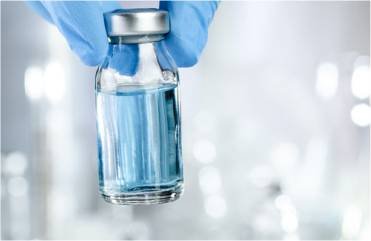
Glass vials for water testing
Glass vials are commonly used in water testing because they are inert, non-reactive, and transparent, making them ideal for collecting and storing samples. They are also relatively inexpensive and easy to clean and sterilize. Glass vials are available in a variety of sizes and shapes, and can be used to store and transport samples for a variety of tests, including pH, dissolved oxygen, and total dissolved solids.
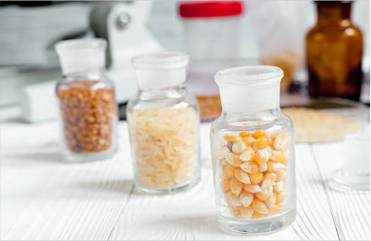
Glass vials for food analysis
Glass vials are commonly used for food analysis due to their inert nature and ability to withstand high temperatures. They are also non-reactive and can be used to store and transport samples without contamination. Glass vials are available in a variety of sizes and shapes, and can be used for a wide range of food analysis techniques, including chromatography, spectroscopy, and titration.
